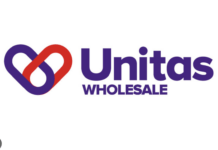How will the supply chain change if every transaction is logged, wonders Nick Shanagher.
Support your local store by using the ‘blockchain’, Amos Meiri writes in the April issue of Wired.
The co-founder of a start-up called Colu, he argues: “Successful ideas have as much to do with good timing as they do with great technology.”
For Generation Y, it was ATMs; for millennials, it “may just be” local currencies.
A US study he quotes shows that 48% of every dollar spent in a locally-owned business stayed local, compared to 14% when spent at a chain. That resonates with a significant number of millennials.
Colu promotes digital wallets. Its website is fresh and friendly. However, the blockchain that Meiri talks about may be as friendly to existing distribution networks as the internet has been to the newspaper industry.
Blockchains are electronic audit trails for any and every transaction. They are so effective, they reduce disputes and guarantee that money gets paid.
But the World Economic Forum has now identified the blockchain as one of the major disruptors to the retail supply chain. It may become the biggest driver of change.
Before considering how this will affect the UK’s distributors and wholesalers, it is worthwhile to think about what happened to the newspaper industry. Newspapers used to make billions of pounds a year because advertisers needed to use them to get messages to local people. As newspapers were expensive to make and distribute, the incumbent titles built the best networks and they were very hard to compete with.
The internet changed all that. Google and Facebook today make billions in advertising sales, but they have none of the physical costs of printing papers and distributing them.
One reason that the internet surprised the newspaper industry – its leaders scoffed in the 1990s when they were told it was a threat – was that the ‘killer app’ was email, which looked nothing like a tool for advertising.
The internet took years to develop, but once email took hold, its position was secure. Then all the other disruptive stuff happened.
Online currency Bitcoin could become blockchain’s killer app, argues Joichi Ito, director of the Media Lab at the Massachusetts Institute of Technology in the US, in a paper he co-authored for the Harvard Business Review.
Ito argues that the blockchain is about to disrupt the world of financial services because it will enable smart contracts and many new types of transactions (perhaps including Colu’s local currencies).
“Currently the landscape is a combination of incumbent financial institutions making incremental improvements and new start-ups building on top of rapidly changing infrastructure, hoping that the quicksand will harden before they run out of runway,” he writes.
This is similar to when the internet started to gain traction. People were confused by products and services promoted by telecom operators and cable companies that claimed to have the internet functionality. Similarly, the rise of the blockchain is being clouded by companies promoting databases dressed up as something they are not. However, Ito argues Bitcoin already offers a robust basic payment system.
Disruption is on its way, and the supply chain for consumer packaged goods is at risk, just like the newspaper networks of old.
In a complex world, the manufacturer and distributor, and the wholesaler and retailer all have imperfect visibility of what happens to a product and service as it makes its way to the consumer. For example, no-one can be sure that a Mars bar in a symbol group store was bought from its contracted supplier. A blockchain can remove the uncertainty.
At present, manufacturers reduce their financial risk by surrendering margin to a distributor. Distributors do the same with wholesalers and so on.
But the stability that the wholesale supply chain offers can be replaced by a blockchain. It changes the dynamic because every transaction becomes transparent.
The big question is how the market will change. Will the blockchains be controlled by Alibaba and Amazon? Or can wholesalers work with companies such as Colu to keep the power at a local level?
Will big distribution networks such as China Post’s Ule transform the supply chain? Or will local foodservice retailers be able to use the internet to keep power closer to their customers?
Many futures are possible, and at some point wholesalers have to know which way to invest.








